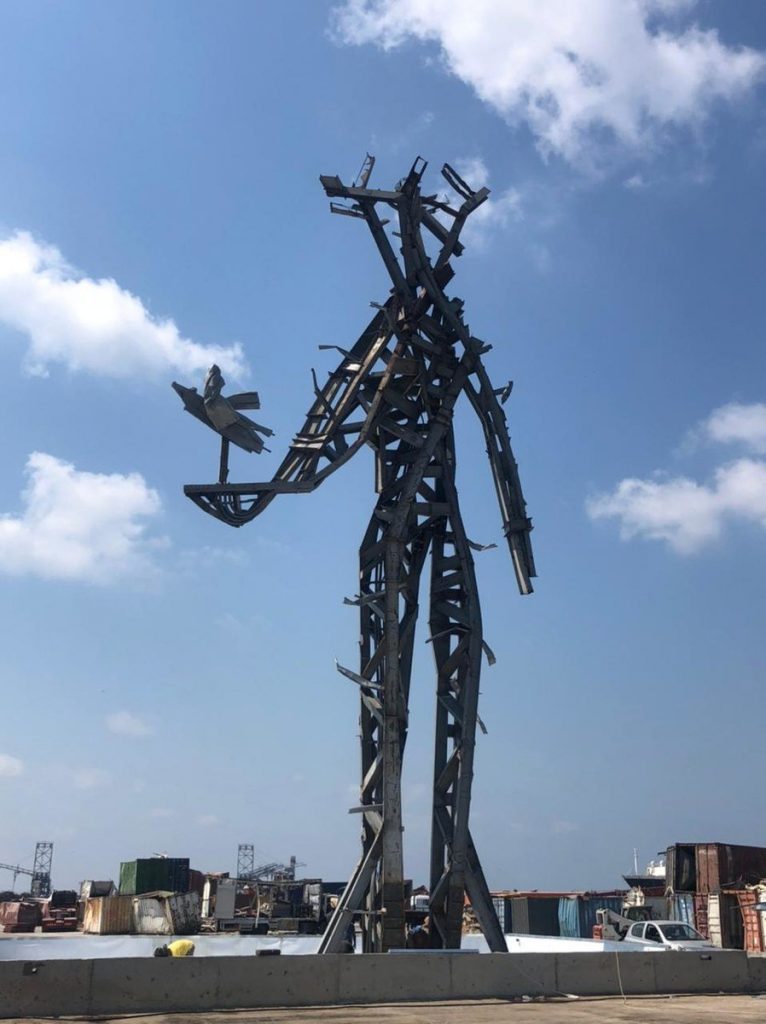
by artnet.com — Sarah Cascone — A year after the deadly explosion in Beirut that shattered the city, a new sculpture commemorating the victims of the tragedy has gone up. It’s a work meant to heal—but in the charged atmosphere of crisis-wracked Lebanon, the memorial is also being met by a wave of fierce criticism. The towering sculpture, by Lebanese artist Nadim Karam, was unveiled on August 2 at the site of the explosion. Standing 82 feet tall and weighing in at 35 tons, The Gesture (2021) is made of steel salvaged from Beirut’s port after the blast. The piece takes the form of a giant holding out a flower. Karam, an accomplished figure in local public art, intended the gesture to symbolize “an act of memory and a gesture towards the immensity of sadness that marks the people of Beirut,” according to a statement. “It is a giant made of ashes, traces from the explosions, scars of the city, that still exist everywhere in Beirut,” Karam told Arab News. “The work represents the scars of the people that still have not healed. This figure is every single one of us and a reminder that we are the living energy of Beirut.”
The Gesture will ultimately also incorporate a water feature and a light installation in time for Lebanon’s national day of mourning on August 4. But the response to the work has been divided. Some argue that the wounds of the attack—which killed more than 200, injured at least 7,000, and destroyed large portions of the city, leaving more than 300,000 without homes—are still too raw for a public memorial, especially on the site itself. “That’s a shameful gesture,” Mazen Chehab, a local creative director, wrote on Instagram, according to the National. “Nothing should be done with the port until those responsible for the explosion are heavily sanctioned.” “The killers have complete impunity and we are already pretending something is in the past and we are trying to transcend it through art,” filmmaker Rawan Nassif told Reuters. “I feel this is a crime scene that can’t be touched yet, and it has to be investigated.” Top officials have thus far not been investigated for the devastating blast, though Lebanese parliament indicated on July 29 that they will no longer have immunity.
The Gesture has also been beset with concerns that it is a government-backed initiative, and thus potentially a piece of propaganda. Karam, however, denies this is the case. “No governmental institutions [sic] has been involved in any way in this project,” Karam insisted in an Instagram post. “The Gesture is a grassroots project.” (The project did, however, have support from the Lebanese Army as well as permits supplied by Lebanon’s Home Security and the Port Authority, according to Mashable.) According to a statement put out by the World Bank last month, Lebanon’s current economic crisis “is likely to rank in the top 10, possibly top 3, most severe crises episodes globally since the mid-nineteenth century.”



